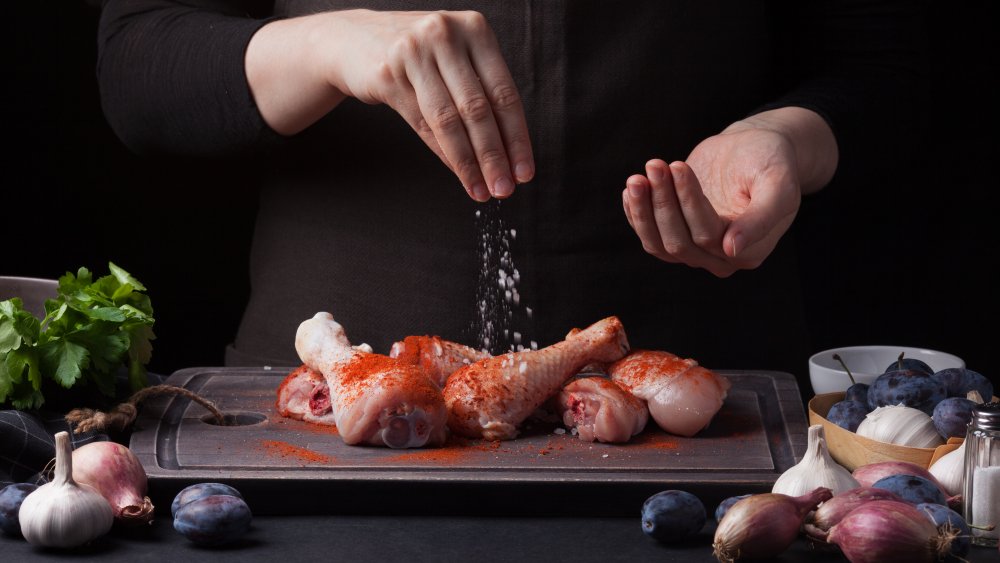This Trick For Seasoning Chicken Will Change Everything
How many of us have a visceral reaction when we hear the term "bland chicken"? It doesn't take more than a second to remember the last time you bit into a chicken breast or a gamey chicken cutlet, only to be disappointed by its rubbery texture and lack of flavor. And before you know it, you're dousing the poor thing in Costco-sized helpings of ketchup, ranch, honey mustard — whatever condiment you can find.
Maybe you cooked it too long. Maybe you didn't take the time to tenderize the meat. Maybe you chopped or shredded it right out of the oven, instead of allowing the chicken to rest (via Taste of Home). All those reasons are perfectly valid answers as to why your chicken might not turn out. But the true answer lies in salt. Did you salt the chicken? Maybe you're nodding your head indignantly. You would never be so foolish as to forgo the salt! But did you salt the chicken at least an hour in advance? 24 hours?
The wise Samin Nosrat says it best: "It really comes down to three basic decisions to make in your cooking: when to salt, layering salt, and how much salt," she writes in her book, Salt Fat Acid Heat (via Food & Wine).
The power of brine will save your chicken — and we promise you'll never look at your poultry the same way again.
Take the time to salt your chicken well in advance
Nosrat believes so deeply in the power of salt that she christens it one of the four elements of good cooking. And as usual, she's not wrong. Salting your chicken in advance will actually make the finished product more succulent. When salt has time to filter through a slab of meat, it actually alters the molecular structure of the meat's proteins. The result? Your chicken will be better equipped at holding in its wonderful, flavorful juices. You can thank science for that one (via The New York Times).
Salting your chicken in advance will also allow for a more flavorful bird. As the hours pass, the salt will flavor the entire bird: not just the surface. And if you're busy juggling the many stresses of everyday life, salting the chicken even an hour or 30 minutes before cooking will make a difference (via The Detroit Free Press).
This salt step can come in the form of a wet or dry brine. A wet brine usually refers to a saltwater mixture — Nosrat takes it a step further by soaking chicken in salt and buttermilk (via At The Kitchen Table). But the dry brine, which is achieved by rubbing the chicken with salt, isn't quite as messy. Plus, the dry brine will allow the chicken skin to brown beautifully once it finally hits the pan, making for a crisp, juicy piece of chicken that will, frankly, make you rethink the power of salt (via Bon Appétit).

